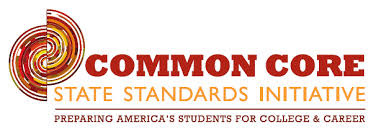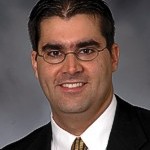Homeschool pioneer Brenda Dickinson can’t say whether she’s for or against Common Core State Standards. She wants to see the the curriculum first. But she does see reason for worry. 
How the national benchmarks are taught and measured might shape textbooks and even college entrance exams – and, through those means, spill over into the fiercely independent world of homeschooling.

“Our kids have always done well on those tests,’’ said Dickinson, who co-founded a statewide advocacy group for homeschoolers in Florida. “But it depends on how closely it’s tied to what’s being taught. If we don’t know what’s covered or how it’s covered,’’ that could hurt students who homeschool.
With more than a million homeschoolers nationwide, such concerns are among the growing pockets of uncertainty surrounding Common Core. Touted by supporters as a push for more rigorous academics, critics, many of them Tea Party conservatives, have turned the standards into a political hot-potato mired in fears of federal control.
Homeschool parents are an incredibly diverse group who choose to educate their children at home for a variety of reasons. For some, it might be for religious or moral beliefs, or for more flexible schedules. For others, it better meets their child’s learning needs or allows them to bypass state assessments.
While some aren’t threatened by Common Core, others bristle at what they see as a possible infringement on their freedom to educate their children the way they see fit.
“We are definitely hearing more concerns from parents about the Common Core,’’ said T.J. Schmidt of the Home School Legal Defense Association (HSLDA), a Virginia-based nonprofit that defends parents’ rights to educate their children at home. “But it’s not so much the standards themselves. There’s more of a fundamental concern – the national aspect.’’

There’s a fear that with creation of national standards, the country is moving toward a “top down’’ sort of philosophy with the government trying to direct education from preschool to college, he said. “These things may not necessarily happen today, but five to 10 years down the road, who knows?’’ Schmidt said. “We don’t know what potentially could be around the corner.’’
Proponents say there is no intention of a federal takeover. Common Core is a state-led effort that was developed by the National Governors Association and the Council of Chief State School Officers to set academic benchmarks that children should be able to master at different levels. Educators from across the country weighed in on developing the standards, with many states already using them for math and English. The standards don’t dictate what curriculum must be taught, but they do set guidelines.
States are not required to adopt Common Core, but the Obama administration offered Race to the Top funding to those that did. That led to suspicions, much of it rooted in mistrust of federal government.
Sandra Frazer, legislative director for Indiana Association of Home Educators, is among those wary of the intent behind Common Core. She views it as federal overreach.
“They keep taking away local control,’’ she said. “They just keep taking it further and further away from the parents.’’
Like other homeschool advocacy groups from California to New York, the IAHE has taken a public stand against the standards, issuing statements and lobbying lawmakers to halt participation. Indiana passed legislation last spring to review the standards and, like other states, including Florida, has withdrawn from a consortium developing standardized tests aligned with Common Core.
On its website, the IAHE outlines its complaints, including the quality and content of standards, and how they were “foisted’’ on the public without much input. The group also worries what impact Common Core will have on curriculum providers and college entrance exams.
Homeschoolers don’t have to abide by state curriculums or assessments, or use the same instructional materials. But some do anyway, like when they sign up for virtual courses. Many others will go on to take the SAT and ACT, tests likely to be aligned with the new standards.
“The SAT was never geared toward one set of standards,’’ said Frazer, who anticipates such a move, in the end, will force homeschoolers to conform. “We’re all being driven to use the Common Core.’’
For the most part, Common Core won’t have any impact on homeschoolers because they can opt out, said Michael Petrilli, an education analyst and executive vice president at the Thomas B. Fordham Institute, a center-right think tank that is among the most dogged proponents of the standards.
However, of the concerns he’s hearing from homeschool advocates, the ones about the SAT and ACT are the most concrete. That’s because the College Board and ACT have said they are going to align the tests with the new standards, he said. Both exams are created by private entities with boards that have their own standards based on what they deem makes college students successful.
“If homeschoolers don’t like the tests changing’’ they need to direct their concerns to those entities, Petrilli said. “Pushing states to pull out of Common Core isn’t going to make a bit of difference.’’


